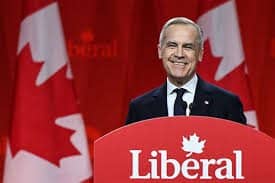
Well, that was unexpected — or maybe not, depending on how closely you’ve been watching Canadian politics. In a big political shake-up, Mark Carney, the former central banker (yep, the same guy who ran both the Bank of Canada and the Bank of England), has led the Liberal Party to a win in Canada’s 2025 federal elections. Justin Trudeau is officially passing the torch.
Now, while the Liberals did come out on top, they didn’t quite snag enough seats for a full majority. So, it’s going to be a minority government — which means a bit more compromise, a bit more coalition-building, and definitely a few late-night debates in Parliament.
So, What’s the Big Deal for India?
For starters, Carney stepping in might actually cool down some of the tension that’s been brewing between India and Canada in recent years. Let’s be honest, the relationship under Trudeau got… rocky. There were diplomatic spats, allegations, and general unease. But Carney seems to be coming in with a fresh approach — he’s big on unity and crisis management, which could open the door to a reset in ties with New Delhi.
Plus, with Jagmeet Singh’s New Democratic Party taking a hit in the elections — and they’ve been pretty vocal critics of India — there’s a good chance the mood will shift toward more constructive dialogue.
What About Indian Immigrants and Students?
If you’re an Indian student dreaming of studying in Canada or someone looking to move there, this could be good news. Carney is expected to take a friendlier approach to immigration. Experts are already saying that his government might work on making immigration smoother and more efficient, especially for skilled workers and students.
That said, there are still real issues on the ground — like sky-high housing costs and job market challenges — that won’t magically disappear overnight. But there’s hope that they’ll at least be tackled more seriously now.
Carney vs. Trump (Yes, That’s Still a Thing)
One interesting twist in Carney’s campaign was his not-so-subtle jabs at former U.S. President Donald Trump. He took a tough stand on Trump’s aggressive trade policies and blunt rhetoric, vowing to protect Canadian sovereignty. That stance clearly resonated with a lot of voters — and could shape how Canada positions itself not just with the U.S., but globally.
What’s Next?
Well, with a minority government, Carney’s going to have to play nice with other parties if he wants to get anything major done. But overall, this feels like a turning point — not just for Canadian politics, but for its international relationships too.
For India, this could be the moment to re-engage, rebuild ties, and maybe even deepen economic and cultural partnerships. We’ll have to wait and see how it all unfolds, but the door’s definitely open.





